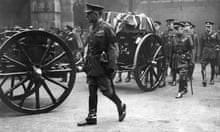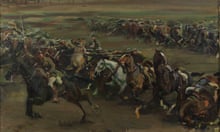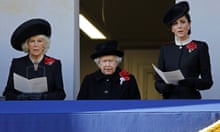The French president has said it is “legitimate” to pay tribute to Marshal Philippe Pétain, who led the French army to victory in the first world war but decades later collaborated with Nazi Germany.
Emmanuel Macron’s plan to honour Pétain alongside seven other French marshals who directed military campaigns during the first world war, which ended 100 years ago on 11 November, has unleashed criticism from Jewish groups, political opponents and on social media.
“I consider it entirely legitimate that we pay homage to the marshals who led our army to victory,” Macron said in the eastern town of Charleville-Mezieres that once lay on the frontline between French and German troops.
“Marshal Pétain was a great soldier in world war one.”
Renowned as a “soldier’s soldier”, Pétain was promoted to commander-in-chief of the French armies in mid-1917, after victory at Verdun, rebuilding troop morale after a series of mutinies and other setbacks.

Verdun was the longest battle of the war; more than 300,000 French and German soldiers were killed during 10 months of trench combat. Pétain emerged as a national hero, and many streets in towns and cities across France were named after him.
Two decades later, with the country poised to fall to German forces in the second world war, Pétain was appointed prime minister of France. His administration, based in the unoccupied part of the country known as Vichy France, collaborated with the Nazis and their deportation and extermination of the Jews.
After the war, Pétain was sentenced to death for treason, though President Charles de Gaulle, a longtime admirer of Pétain, reduced the punishment to life in prison.
“It is shocking that France can pay tribute to a man deemed unworthy of being French in a trial held in the name of the people,” said Francis Kalifat, the president of Crif, the body that represents France’s 400,000 Jews.
Jean-Luc Melenchon, the head of the hard-left France Insoumise (France Unbowed) party, wrote on Twitter: “Marshal Joffre was the military victor of the 1914-18 war. Pétain was a traitor and an antisemite. His crimes and his betrayal cannot be erased from history. Macron, this time, you’ve gone too far.”
Pétain died in prison in 1951 aged 95.









